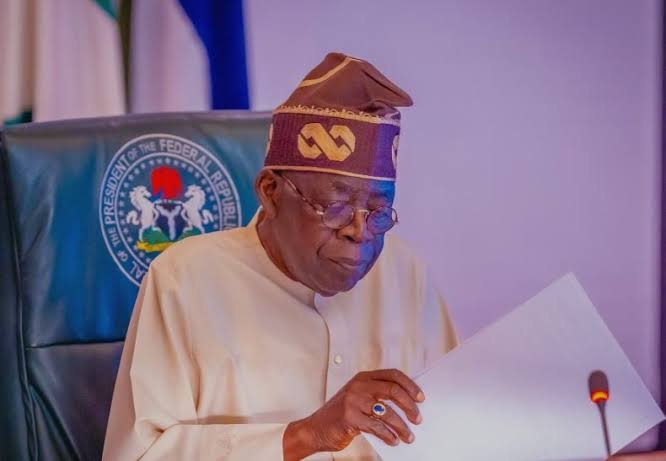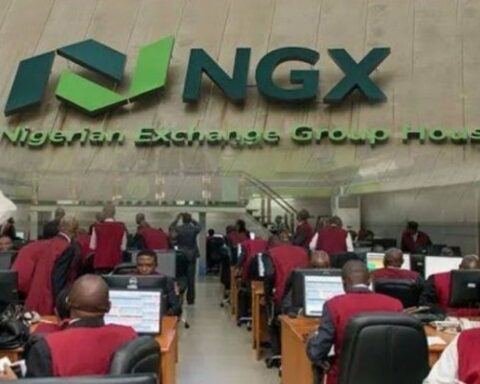In an apparent bid to exculpate himself from the sleaze and opacity that have dogged the oil sector management under his watch, President Bola Ahmed Tinubu (PBAT) has denied that he is the nation’s petroleum minister, the political head of the oil industry in the country to whom the junior ministers and other ranking officials in the industry report.
The oil sector managers have come under fire by Nigerians who believe that, more than anyone else, it is the mismanagement of this most important sector of the Nigerian economy that has brought the country to this sorry economic pass.
References are constantly made to the capricious, off-the-cuff removal of fuel subsidy by President Tinubu in his inaugural speech on May 29 last year, and the failure of industry stakeholders to emplace and efficiently manage a new price mechanism, as the major cause of the run-away inflation, low agricultural production and the consequent hunger that have plagued the country since Tinubu came to power.
The corruption in the oil industry, it has been further pointed out, has been made more obvious in the expenditure of over $1.5bn to refurbish the nation’s four refineries in Port harcourt, Warri and Kaduna while the refineries remain comatose, obviously because the authorities do not want to stop the lucrative fuel imports that have corruptly enriched a few in the corridor of power.
While Tinubu has a Minister of State for oil and another for gas, there is no substantive minister of petroleum resources, fueling the belief that Tinubu, just like Obasanjo and Buhari before him, had assumed the position of Minister of Petroleum.
But appearing on Channels Television yesterday (Sunday, October 27), Tinubu’s spokesman, Bayo Onanuga accused Nigerians of calling Tinubu ‘oil minister’ while the president never called himself one.
Perhaps, without meaning to, Onanuga’s ‘clarification’ would appear to have added to the alleged opacity or confusion driving the management of the oil sector, especially because the president never made it clear what he had decided on as to the management hierarchy of the oil industry.
Onanuga reiterated in the Channels TV outing that the Petroleum Ministry has two Ministers (of State) supervised by Tinubu, wittingly or unwittingly admitting that the president is the de facto Minister of Petroleum.
“The President has never called himself the Minister of Petroleum; it’s you people in the media. We have two Ministers and as far as this President is concerned, we have two ministers of petroleum, and one of them focuses on gas,” he said.
“That’s an area that this government discovered in the past that Nigeria neglected and Nigeria is more of a gas country than an oil country; President Tinubu is focusing on gas.
“Recently, Obasanjo said he made a mistake during his time by not focusing on gas and Tinubu is rectifying that by making sure we focus on gas. The president supervises all his ministers; he’s in charge of everything.”
Nonetheless, Nigerians do not seem convinced. They argue that each of the ministries whose ministers report to Tinubu, even ones not as significant as Petroleum, has two ministers apiece – a senior minister and Minister of State – querying the rationale behind the appointment of two ministers of State for the all-important petroleum ministry, leaving it without a substantive minister of petroleum.
Regardless of what TheNiche described as Tinubu’s ‘gaslighting’ of the issues, the newspaper quoted the National Coordinator of Human Rights Writers Association of Nigeria (HURIWA), Emmanuel Onwubiko, in a Daily Post report, as insisting that the president must step down from the portfolio of ‘oil minister’ because it is not appropriate for him to hold that post.
“Ideally, President Tinubu is not supposed to have another appointment outside his presidential office. It is not correct for a President of a country to still occupy the position of Minister,” Onwubiko said.
“It doesn’t make any logical sense. Aside from the issue of allowing for investigation in the sector, in a place where things are done right, the President is not supposed to have a ministerial position attached to his office. It is completely inappropriate.”
Adverting to the recent cabinet reshuffle, Onwubiko said: “Minor changes that happened in the cabinet are not enough to make any serious impact in the nation’s economy.
“The President did not reduce the number of Ministers. This won’t have any significant role in reducing the cost of governance. About 75 per cent of the entire ministerial cabinet ought to be moved out.
“Removing just five when you know that half of the cabinet needs to go will not make any difference”.
Meanwhile, a chieftain of the Peoples Democratic Party (PDP) in Benue State, Aondoakaa Theophilus, has argued that Tinubu’s position as Petroleum Minister is “shielding evils in the oil sector.”
According to the TheNiche, Aondoakaa argued that “the reason no action has been taken against the NNPCL [Nigerian National Petroleum Company Limited] is because Tinubu is in charge.
“It will be difficult to investigate a President when he is still in power, so what is happening in the sector is that his position is shielding the corruption going on in the NNPCL.
“As it is right now, investigating the Petroleum Ministry is like investigating activities in Aso Rock.
“The President is in charge. His position in the sector has also crippled the lawmakers. Nobody would want to investigate a ministry that the President is heading.
“Tinubu should resign [as Oil Minister] as a matter of urgency. He should find a competent Nigerian to head the sector so that he can be focused on governance. I don’t want to believe that there is something he is benefiting from.”
However, public affairs analyst Jerry Adakwu countered that “the [Petroleum] Ministry is too sensitive for Tinubu to give to someone else.
“President Tinubu isn’t the first President to be in that position. Former President Mohammed Buhari also appointed himself as Petroleum Minister.
“I’m not sure that his position is affecting the sector negatively. However, if there is anyone that has been caught in the web of corruption, the President should not hesitate to fire the individual.”
Courtesy TheNiche, additional reporting by Daily Query staff



























